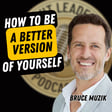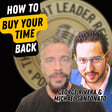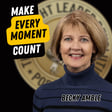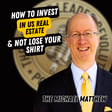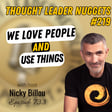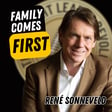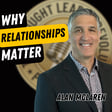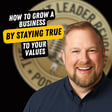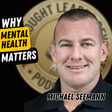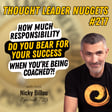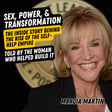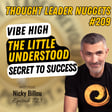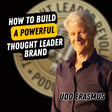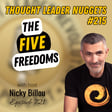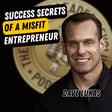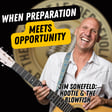
EP558: Chuck Dixon - How To Make Yourself Irreplaceable
“Even if you don't believe it yourself, you never apologize for your own work.”
Have you ever wondered what it takes to become irreplaceable in your field, to carve out a niche where your expertise shines and your contributions are valued?
Chuck Dixon's story is an unwavering passion and relentless pursuit. From his early days, he harbored a deep love for comic books, dedicating himself to mastering the art of storytelling within this dynamic medium. Without a backup plan, he immersed himself fully, chasing his dream with determination and grit.
In a world where Marvel and DC are perceived as rivals, he reveals a different reality—a camaraderie fueled by a shared passion for storytelling. Despite shifts in editorial leadership and industry dynamics, Chuck remained focused on his craft, embracing opportunities to work on beloved characters like Punisher and Batman. The comic book industry has undergone significant changes over the years, with mainstream publishers facing criticism for prioritizing political agendas over storytelling quality. In response, he embraced independent and crowdfunding platforms, connecting directly with audiences who yearned for authentic narratives free from external influence.
Chuck’s story offers valuable insights for aspiring thought leaders. From never apologizing for your work to avoiding office politics and striving to become indispensable, his principles underscore the importance of resilience, integrity, and dedication in achieving success.
Expert action steps:
- Never apologize for your work.
- Avoid office politics.
- Strive to be the go-to person.
Here's how to connect with Chuck Dixon:
-Explore Chuck Dixon's collection of works available on Amazon. Simply search his name to find his books and other projects.
-Connect with Chuck on Facebook and other social media platforms to stay updated on his latest projects, news, and insights.
FB https://www.facebook.com/p/Chuck-Dixon-100058075188021/
X https://twitter.com/Dixonverse
-Don't miss Chuck's weekly show, "Ask Chuck Dixon," on YouTube.
-Learn more about Cuck by visiting his website: https://www.chuckdixon.net/p/chuck-dixon-is-veteran-comic-book.html
Visit eCircleAcademy.com and book a success call with Nicky to take your practice to the next level.

